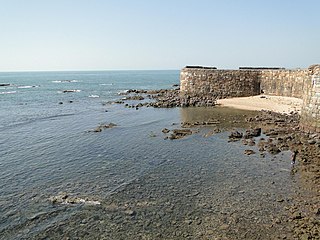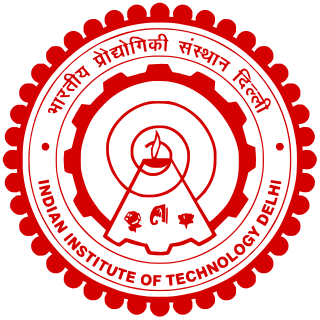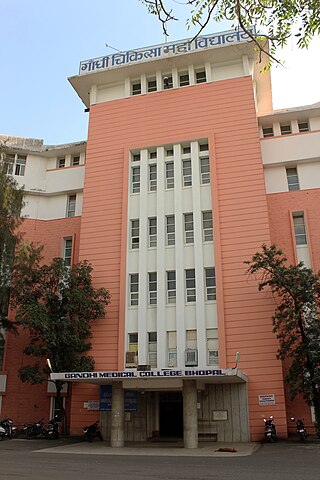The National Institutes of Technology (NITs) are the central government-owned-public technical institutes under the ownership of Ministry of Education, Government of India. They are governed by the National Institutes of Technology, Science Education and Research Act, 2007, which declared them as institutions of national importance and lays down their powers, duties, and framework for governance. In 2019, first IIEST was added under Council of NITSER. The act lists thirty-two NITs. The oldest NIT is now IIEST Shibpur. Each NIT is autonomous, linked to the others through a common council known as the Council of NITSER, which oversees their administration and all NITs are funded by the Government of India.

Delhi University (DU), formally the University of Delhi, is a collegiate central university located in New Delhi, India. It was founded in 1922 by an Act of the Central Legislative Assembly and is recognized as an Institute of Eminence (IoE) by the University Grants Commission (UGC). As a collegiate university, its main functions are divided between the academic departments of the university and constituent colleges. Consisting of three colleges, two faculties, and 750 students at its founding, the University of Delhi has since become India's largest institution of higher learning and among the largest in the world. The university has 16 faculties and 86 departments distributed across its North and South campuses, and remaining colleges across the region. It has 91 constituent colleges. The Vice President of India serves as the university chancellor.

The Goa Institute of Management, is one of the top business school of India located near Sanquelim in city of North Goa district in the state of Goa.

Christian Medical College, Vellore, widely known as CMC, Vellore, is a private, Christian community-run medical school, hospital and research institute. This Institute includes a network of primary, secondary and tertiary care hospitals in and around Vellore, Tamil Nadu, India.

Sindhudurg district is an administrative district of the Konkan division in India, which was carved out of the erstwhile Ratnagiri district. The district headquarters are located at Oros and the district occupies an area of approximately 5,207 km2 and has a population of 849,651, of which 12.59% were urban. As of 2011, it's the least populous district of Maharashtra.

Jamia Hamdard is an institute of higher education deemed to be university located in New Delhi, India. It is a government-funded university. Established in 1989, it was formally inaugurated by the then Prime Minister of India Shri Rajiv Gandhi on August 1, 1989. In 2019 it was awarded the Institute of Eminence status by Ministry of Human Resource Development.

IIT Delhi, officially Indian Institute of Technology Delhi, is a public institute of technology located in New Delhi, India. It is one of the 23 Indian Institutes of Technology created to be Centres of Excellence for India's training, research and development in science, engineering and technology.

Lady Hardinge Medical College is a medical college for women located in New Delhi, India. Established in 1916, it became part of the Faculty of Medical Sciences, University of Delhi in 1950. The college is funded by the Government of India.

Pondataluka is a subdivision of the district of South Goa, Goa state, India. Its administrative headquarters is the township of Ponda.
Guru Gobind Singh Medical College is a government school of medicine located in Faridkot, Punjab, India..
Abdul Malek Ukil Medical College (AMUMC), formerly known as Noakhali Medical College, is a government medical school in Noakhali, Bangladesh. The college was established in 2008. It is named after Abdul Malek Ukil.

Shiroda is a village in Ponda Taluka in South Goa District, Goa, India. The village has a population of 14,112 based on 2001 census data.

Gandhi Medical College is a medical college in Madhya Pradesh, India. Established in 1956, it is located at Fatehgarh, Royal Market Area, Bhopal.
Vishwa Kumar Gupta, is an Indian homoeopathic physician and former Principal of the Nehru Homoeopathic Medical College, New Delhi. The Government of India honoured him, in 2013, by awarding him the Padma Shri, the fourth highest civilian award, for his contributions to the field of medicine.
Jugal Kishore (1915–2012) was an Indian homoeopathic physician and the founder Director of Nehru Homoeopathic Medical College and Hospital, New Delhi, a Government of Delhi undertaking. He was honored by the Government of India, in 2012, with the fourth highest Indian civilian award of Padma Shri.
Krishnaswami Srinivas Sanjivi (1903–1994) was an Indian medical doctor, Gandhian, social worker and the founder of Voluntary Health Services (VHS), a medical facility in Chennai reported to be serving the lower and middle-class people of the society. He was honoured by the Government of India in 1971 with Padma Shri, the fourth highest Indian civilian award. Five years later, the government followed it up by awarding him the third highest civilian award of Padma Bhushan in 1976.
Paneenazhikath Narayana Vasudeva Kurup was an Indian Ayurvedic practitioner, researcher, writer and the founder director of the Central Council for Research in Homoeopathy (CCRIMH). He is a former vice chancellor of the Gujarat Ayurved University, Jamnagar and a former advisor of the Indian Systems of Medicine and Homoeopathy (ISM&H) of the Ministry of Health and Family Welfare. He has published several articles and a book, A Handbook on Indian Medicinal Plants, on the traditional Indian medicine system, The Government of India awarded him the fourth highest civilian honour of the Padma Shri, in 2005, for his contributions to Indian medicine.

Metropolitan Homoeopathic Medical College & Hospital, is a Homoeopathic Medical College in Sodepur, Kolkata, West Bengal, India.
Shri Ram Murti Smarak College of Engineering and Technology (SRMSCET) Unnao, also known as SRMS CET Unnao or SRMS CET Lucknow is a private-unaided engineering college of SRMS Institutions in the Lucknow region of Uttar Pradesh situated at 35 km on Lucknow -Kanpur Highway, Village Ashakhera-Kushari, Unnao, Uttar Pradesh, India. Founded in the memory of the late Shri Ram Murti Ji, it is managed and run by SRMS Trust and offers undergraduate courses as B.Tech. in engineering. Since its inception in 2011, the college has created a world-class learning environment with its state-of-the art infrastructure and qualified faculty members.

National Institute of Technology Tiruchirappalli is a public technical and research university near the city of Tiruchirappalli in Tamil Nadu, India. It was founded as Regional Engineering College Tiruchirappalli in 1964 by the Governments of India and Tamil Nadu under the affiliation of the University of Madras. The college was granted Deemed University status in 2003 with the approval of the University Grants Commission (UGC), All India Council for Technical Education (AICTE) and Government of India and renamed as National Institute of Technology Tiruchirappalli. The institute is recognized as an Institute of National Importance by the Government of India under the National Institutes of Technology, Science Education and Research (NITSER) Act, 2007 and is one of the members of the National Institutes of Technology (NITs) system, a group of premier Indian technical institutes governed by the Council of NITSER.











